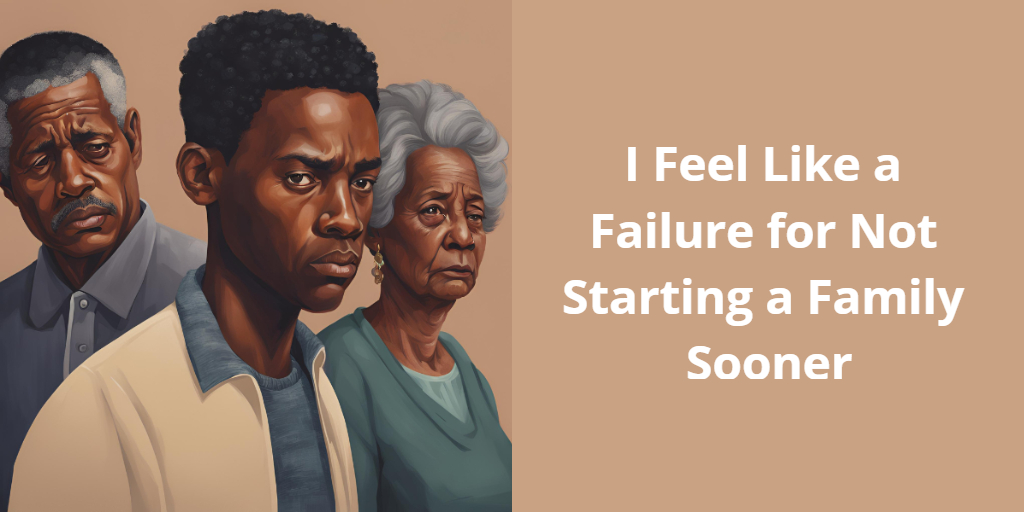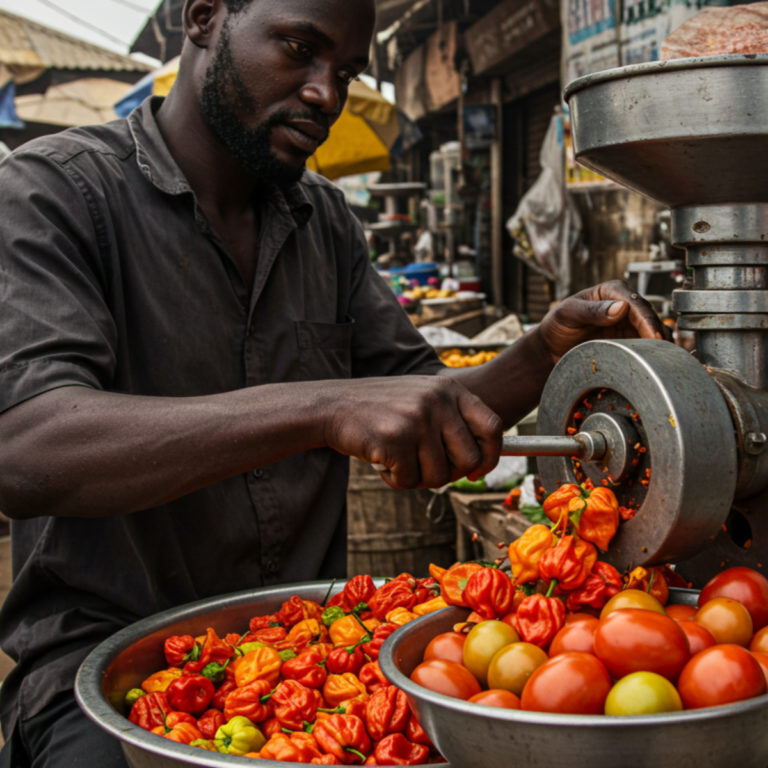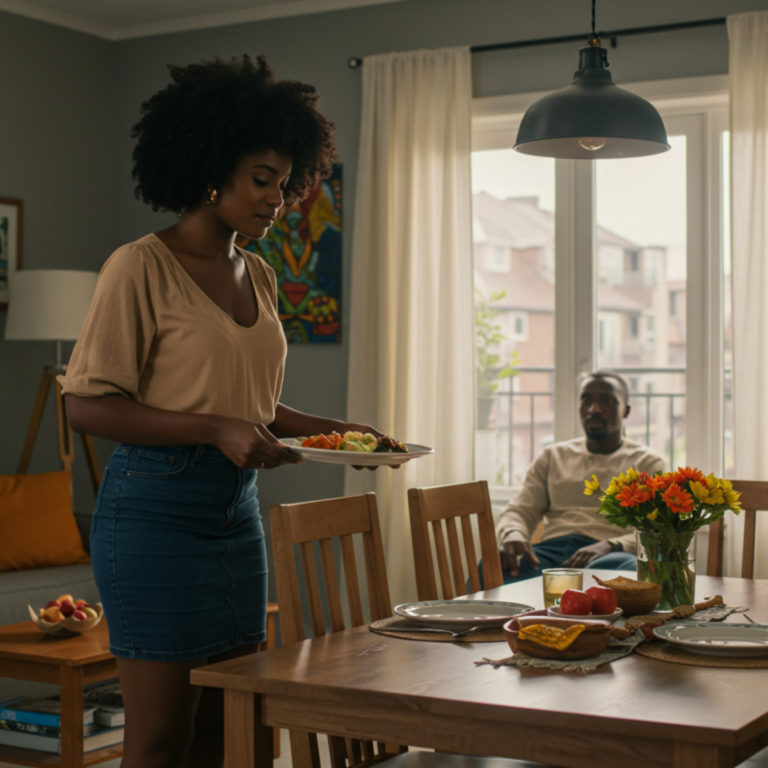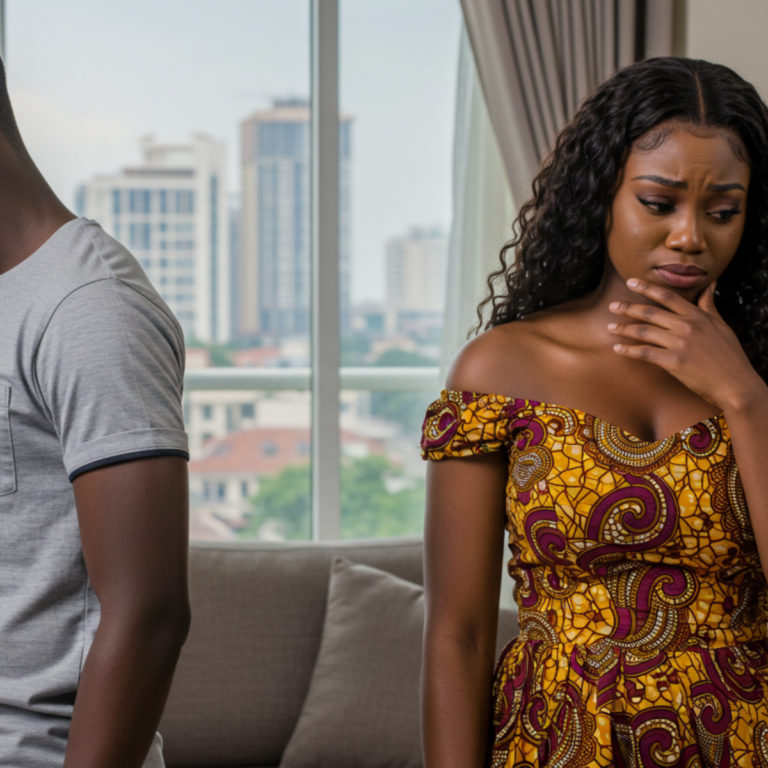I was looking to speak with young men navigating failures in their lives when I found Sunkanmi*.
The 33-year-old opens up about how his inability to start a family due to Nigeria’s harsh economic conditions makes him feel like he’s failed his ageing parents, who toiled to give him a better life.

As told to Adeyinka
In the version of my early thirties that I spent my twenties dreaming about, I should be married with two kids by now. I should also have a nice house and cars for my wife and me, be able to take vacations abroad and have a bank account with savings that guarantee peace of mind. I’m 33, pushing 34, and I’ve not achieved any of these things.
I’m usually not one to let these delays weigh me down because I’ve always believed that it’s never too late for life to pleasantly surprise you. But recently, it’s started to bother me. My dad is a good example of “It’s never too late to start”. Let me explain.
Until I graduated from secondary school, things were tough at home. My dad was out of a job because he was ill — doctors could never come up with a diagnosis for all the six years he was sick. So, my mum, a frozen foods trader, was the family’s sole provider. We never lacked, but we only had enough for the necessities. My sibling and I learnt early enough never to ask for money for anything deemed unimportant.
After I completed secondary school, my mum became increasingly worried about the expenses of funding my university education. It was a constant talking point in the house. Her frozen foods business only generated enough income to cater to our small family of four and tend to my ailing father. Funding a university education on that income just wasn’t feasible. My mum even considered approaching family members to crowdfund. I hadn’t even gained admission to a school, but she didn’t want to wait until the last minute.
Call it a miracle or coincidence, but my mum’s sadness and desperation at the time reawakened something in my dad. He started recovering, and the illness left as mysteriously as it came. He reconnected with old friends and business associates who were kind enough to return his calls and help him find his feet again.
After my dad turned 50 in 2012, he launched his automobile sales company, bought my mum’s first car, and I gained admission into a private university with higher tuition than the government university my mum wanted me to attend.
I left uni in 2016, and eight years later, I can’t say that life is looking up. I don’t know what the future holds.
Honestly, things started to go downhill right after graduation. I left uni with a third class and kept it from my parents. I couldn’t bear the thought of sharing the news and breaking their hearts. I came up with all sorts of lies about my result until they stopped asking. Thankfully, I went for NYSC soon after graduation, which erased their doubts about whether I truly completed university.
After NYSC, my dad resumed asking for my certificate and CV so he could send them to friends who had promised to help with a job. But with a third-class degree, I was sure I’d make myself and my dad laughing stocks to people who held him in high regard. So, I stalled and came up with more excuses whenever he mentioned the topic.
Fast-forward to two months later, I talked my parents into letting me move to my uncle’s place in Lagos, where I was certain I was going to hit it big.
As someone who spent most of his teenage years in Ogbomosho, I’d seen friends and relatives move to Lagos and seemingly have things go well for them. I was especially convinced because some of them didn’t attend uni. If they could make it, I felt I had a better chance as a graduate.
Lagos wasn’t all I hoped it would be, but after weeks of submitting job applications, I struck gold with manufacturing factories. Most didn’t care about my third-class degree as long as I had the physical strength to work. I landed a factory job that paid ₦65k for an eight-hour shift and threw in a bonus for people willing to work weekends.
Six months after my first job, I changed jobs a few times and landed a supervisory role at a beverage production factory in Ijebu. The role came with free accommodation and paid ₦150k.
I left the factory job in 2021. My body could no longer take on the physical demands and long shift hours that were required. Also, the ₦150k salary that had seemed like a big deal in 2019 was barely enough in 2021.
I returned to my uncle’s place in Lagos after I left the job. A friend told me he was making a killing from Uber and Taxify as a cab driver, so I gathered my savings and bought a second-hand Camry 2004 Le for ₦1.8m. I could’ve bought it from my dad or asked him to help with the car, but I wanted to do it myself. At 28, I didn’t want to be seen as depending on my parents for handouts. Moreover, I’d given them the impression that my life was on track in Lagos.
I started the cab service fully in early 2022. On the side, I took on private driving gigs for companies and individuals, worked as a part-time driver with a catering company, and even enrolled as an apprentice at a private mechanic workshop.
More than three years after “hustling”, as the streets would call it, I can’t say I’ve done much with myself. It’s as if Nigeria swallows up your efforts no matter how hard you try. You think you’re earning a cool sum or have saved up enough to consider settling down, and the economy suddenly takes a dive, reducing your savings to nothing and leaving you uncertain. I should also mention that I lost ₦2.5m of my savings to relocation scam.
In all of this, my love life has been non-existent. I’ve gotten into on-and-off relationships, but nothing serious. I’m constantly afraid I’ve not made enough to start a family or fend for one.
I once had a lady who almost pressured me into marriage. She wasn’t bothered about my finances and used every opportunity to mention that her parents would support us in every way—they’d foot the wedding, help us with an apartment, and even sponsor our relocation abroad. As much as it sounded like a good deal, I wasn’t comfortable with the idea of depending on her parents. I eventually broke things off.
Last year, my mum was diagnosed with glaucoma and partially lost her sight for some months. I remember almost breaking down in tears when I visited her at home. At that moment, I realised there was a possibility she’d never see my face again, my children, who I choose to spend life with, or what my wedding ceremony would look like.
I’ve watched my parents travel miles for wedding ceremonies or naming parties of friends and relatives. I’ve watched them tend to the neighbours’ children like their own. I’ve watched them babysit for relatives who needed support. In their old age, I’ve realised that these things give them a deep sense of joy and fulfilment. Even though they never pressure me, I feel like my inability to settle down and start a family deprives them of the joy they derive from outsiders.
Sadly, I don’t know what the future holds or if they’ll be alive to witness it. I’m still out here hustling and doing my best to create a soft landing for the family I don’t have yet. I’ve accepted that I might be a late starter, just like my dad.
Read this next: My Parents Once Ignored Me for a Year




